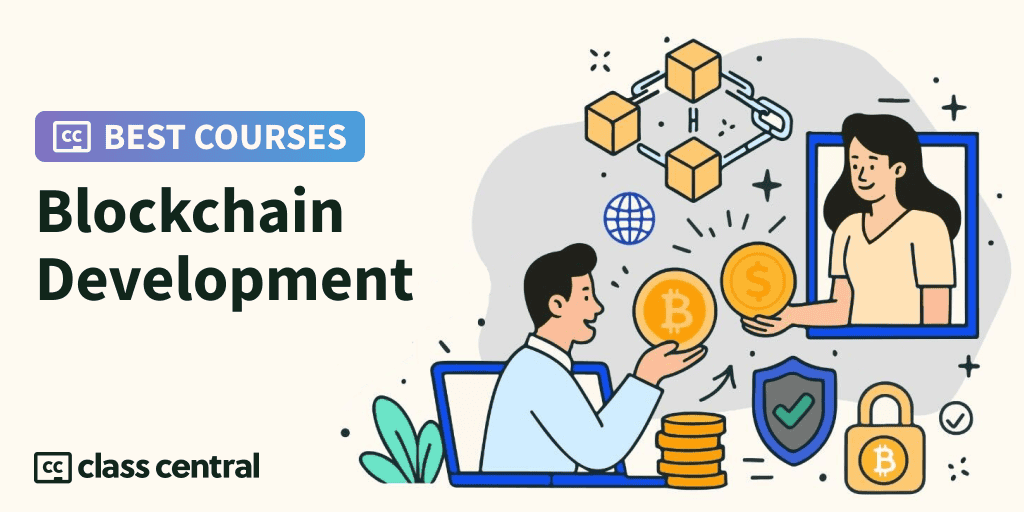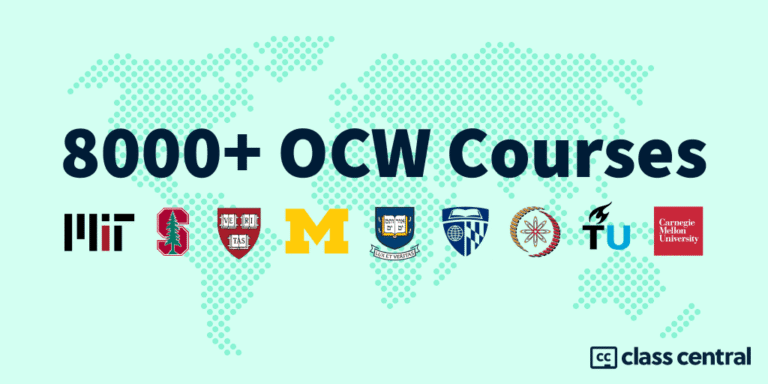

“We have proposed a system for electronic transactions without relying on trust,” said Satoshi Nakamoto, fifteen years ago, in the Bitcoin whitepaper.
When Bitcoin was released, we thought that blockchain, the technology behind the peer-to-peer, transparent, payment system, was restricted to digital money. Little did we know that a security revolution would follow.
Blockchain’s core strengths—transparency, immutability, and decentralized consensus spread to sectors like healthcare, supply chain, real estate, and logistics, that are leveraging it for security, efficiency, and trust.
For instance, Walmart used it to track mangoes, and IBM to track fish! Microsoft uses it for supply chain and digital asset management, and Samsung Electronics, for device security and digital identity solutions. The versatility is impressive.
It’s an exciting time for existing or aspiring blockchain developers because the demand is huge but the number of experts is low because it is still an evolving field.
If you’re planning to dive into the world of blockchain and build decentralized applications (dApps), design secure smart contracts, or build enterprise solutions, I’ve got some blockchain courses and an expert interview for you.
Shortcuts
- Why Learn Blockchain Development?
- Expert Insights—How to Stand Out as a Blockchain Developer?
- Why Trust Us and Why These Courses?
- The Best Blockchain Development Courses
The Best Blockchain Development Courses
Why Learn Blockchain Development?
In a Forbes article, the Founder of SearchMyExpert, a platform to hire blockchain developers, said that businesses are keen to integrate blockchain into their operations to provide value to their customers. But the trouble is finding the right talent.
This is because the field is growing so rapidly, that there aren’t enough holistic degree programs in universities. On the other hand, since the need is growing, so is the competition. According to Web3 Careers, there are around 500 jobs posted every month, but every job has 117 applicants.
One reason for this competition is the benefits this field offers beyond a generous salary.

While the benefits and competition are huge, so is the depth of experience that employers value, which justifies the average salary of $146,000 (and goes up to $175,000).
But it’s not easy to get this mastery, with the lack of comprehensive degree programs and the rapid evolution. The next best thing is online courses and certifications to showcase your practical skills.
This list introduces you to blockchain courses, programs, and tutorials, that will help you build strong foundations to adapt to this exciting expansion.
Before we get to the courses, I’ve got an expert interview for you. I spoke to Mitchell DiRaimondo, Founder and Lead Project Manager of SteelWave Digital, for his take on the swift development of the field. He explains how blockchain has evolved and how you can carve a long-term space as a developer in it.
Expert Insights—How to Stand Out as a Blockchain Developer?
- How has the use of blockchain evolved in the past 5–10 years?
The last decade has been a shift from ideology to infrastructure. We started with Bitcoin as a monetary experiment and Ethereum as a programmable layer for assets and logic. We’re seeing a professionalization of the space—institutions moving from pilots to actual deployments, particularly in areas like tokenization of real-world assets, settlement layers, and digital identity. Blockchain, today has high-signal utility.
- Today, are employers looking for blockchain development skills in candidates?
Yes, but “knowing blockchain” isn’t enough. Employers want people who understand how blockchain fits into a broader economic and technical stack. It’s not about spinning up tokens—it’s about knowing when decentralization adds value, how to handle custody, what trade-offs exist between different L1s, and how to build compliant, scalable infrastructure. The understanding of blockchain has to be nuanced.
- What should a great blockchain course teach?
A great course should train students like builders and operators. It needs to cover cryptographic fundamentals, consensus mechanisms, and smart contract design and should cover custody frameworks, compliance, tokenomics, and secondary liquidity. It should also help students think critically about when to use blockchain because everything “being on chain” isn’t always the best solution.
- Which sectors are booming in blockchain right now?
Real-world asset tokenization (RWA), on-chain capital markets, and Bitcoin-native structured products are leading the next wave. We’re seeing capital go to commercial real estate tokenization, tokenized treasuries, and DeFi protocols integrating with TradFi rails. If you’re just starting out, focus on where blockchain intersects with large, dormant capital markets.
- How can developers stand out in this field when the industry needs to evolve all the time?
It’s not just about writing Solidity anymore. The edge comes from understanding capital flows, regulatory frameworks, and how smart contracts tie into real-world enforceability. Developers who can speak both the technical language of Web3 and the institutional language of asset managers will define the next chapter. Learn the plumbing—custody, compliance layers, zero-knowledge proofs, and work on projects building for scale, not speculation.
Why Trust Us and Why These Courses?
At Class Central, we’ve built a global online course database with 250,000 courses from different platforms such as Coursera, Udemy, Skillshare, and more.
We want to make your course selection journey easier by listing credible courses, helping you compare without visiting multiple platforms, and offering you learner reviews.
We don’t just list courses or create Best Courses Guides; we also track the latest trends in online education and deliver fresh, original insights to you via The Report.
Now, the question is: how have I chosen these courses?
I’ve picked them based on:
- Industry-recognized certifications: You’ll find courses by EC Council, 101 Blockchains, and more platforms whose certifications are globally recognized.
- Free and paid content: I’ve included premium courses and free tutorials and courses to cater to existing developers and aspiring ones, including students.
- Hands-on experience: Most of these courses offer real-world training with projects and assignments.
- Multi-language curricula: Many courses teach Java, Python, and more, adding to your flexibility.
- Beginner to advanced level learning: I’ve picked courses that offer strong foundational learning in core topics such as Solidity, and advanced skills such as intelligent smart contracts.
- Community-recommended content: Most of the courses have been recommended by Reddit communities of blockchain developers.
- Updated curriculum: Most of these blockchain courses align with recent developments in the field, and while some don’t (because of the rapid growth of the industry), they offer strong foundational knowledge of blockchain technology.
Let’s get to the courses.
Best Blockchain Programming Introduction (Dapp University, YouTube)
- Level: Beginner
- Duration: 11 hours
- Cost: Free
- Certification: No

If you want to build your first blockchain application and don’t know where to begin on a limited budget, this tutorial is for you.
Gregory, from Dapp University, walks you through building a complete marketplace dApp using Ethereum, Web3.js, and Solidity smart contracts.
The tutorial covers everything from dependencies and getting started to selling and buying products on the blockchain. It also teaches you how to build the frontend interface. You’ll create a functioning decentralized marketplace application step-by-step, with access to all the source code on GitHub (in the YouTube description).
What sets it apart?
- It’s a free resource, but it’s comprehensive and holistic
- It teaches you how to build a complete, functional blockchain application from scratch
- It offers a step-by-step coding walkthrough with an explanation at each stage
- It includes both smart contract development and frontend integration
- The instructor, Gregory, has been a software developer for over a decade and is a blockchain instructor and the founder of Dapp University
What you might not like
As it’s a free YouTube tutorial, you won’t find assignments, projects, or certifications in it, but it has a GitHub repository with course materials (in the YouTube description).
Who is it for?
- Programmers who want to learn about blockchain with a limited budget
- Developers looking for a free resource for hands-on project building
P.S. Dapp University has more free tutorials and a bootcamp on blockchain development.
Best Blockchain Developer Certification (EC-Council)
- Level: Intermediate
- Duration: 5 days
- Cost: Paid
- Certification: Yes

If building secure, scalable applications is your goal, take this course designed for aspiring blockchain developers seeking deep training.
You’ll get practical experience with Python, JavaScript, and Java blockchain development, plus deep dives into Ethereum and Solidity smart contract creation. You’ll also learn consensus mechanisms, blockchain scalability, digital currencies, permissioned and permissionless blockchains, Hyperledger Fabric, privacy, decentralized autonomous organizations (DAOs), crypto mining algorithms like Equihash and CryptoNight, and more.
This course teaches real-world skills, and you’ll understand blockchain applications across industries such as finance, healthcare, and supply chain. The projects include finding a bug in a Solidity program, setting up a private net, building an app with blockchain, and (10) more.
What sets it apart?
- It covers development in Python, JavaScript, and Java, and explores both Ethereum (including Solidity) and Hyperledger Fabric
- The curriculum includes advanced and emerging areas such as quantum-resistant ledgers, machine learning integration, intelligent smart contracts, and more
- It allows you to explore blockchain in different industries
- The projects are hands-on and train you for the job
- It helps you prepare for the Certified Blockchain Developer (CBD) exam, which is industry-recognized
- EC-Council’s expert-designed courses are meant to meet industry requirements of leading companies
What you might not like
- The course requires solid programming foundations in JavaScript and full-stack web development before enrolling.
- The price is steep, but it helps you prepare for the Developer Certification Exam
Who is it for?
- Beginners looking to transition into blockchain development
- Developers who want to integrate blockchain solutions into their projects or organizations
- Technical professionals who want a credential that demonstrates theoretical knowledge and practical skills in blockchain development
Best for Web3 Blockchain Development (101 Blockchains)
- Level: Intermediate
- Ratings: 4.9
- Duration: 18 hours
- Cost: Paid
- Certification: Yes

If you understand how blockchain works and want to build Web3 applications, this certification will help.
The course focuses on Solidity smart contract development, NFT creation, and DeFi project building, not just theory. You’ll learn development with tools like Truffle, Ganache, Hardhat, and IPFS.
The curriculum goes a step beyond the basics and covers smart contract security (crucial since hackers steal over $2B annually from blockchain protocols), advanced NFT development, and automated market makers for DeFi exchanges. It includes unit testing for Web3 apps and formal verification techniques.
What sets it apart?
- You get access to course presentations, additional lectures, and exclusive online events
- This is also great for beginners who have limited knowledge of blockchain and Web3
- It includes hands-on exercises, interactive demos, and real project workflows
- Learners admire how the course has helped them implement the learning in their work
- The instructor, Gimer Cervera, is a Ph.D. in Computer Science who has been developing and auditing smart contracts for 7+ years
What you might not like
- The course requires prior knowledge of blockchain fundamentals, so complete beginners will struggle
- The course is steeply-priced, but the certification is industry-recognized
Who is it for?
- Software developers who want to build Web 3 applications
- IT professionals who want to specialize in Web3 development
Best Blockchain Training Program (Udacity)
- Level: Beginner
- Duration: 29 hours
- Cost: Paid (subscription)
- Certification: Yes

This Nanodegree Program delivers blockchain training that employers will value. It combines blockchain fundamentals with hands-on Solidity smart contract development. You’ll build your private blockchain using Node.js, create smart contracts on Ethereum, and develop a blockchain-powered supply chain dApp.
The curriculum covers consensus mechanisms, cryptography, wallet systems, and security patterns. As your final project, you’ll build a collateralized loan smart contract.
This course is made for beginners, but it’s also helpful for developers who want to get more fluent in blockchain.
What sets it apart?
- The program is designed for job readiness with in-demand blockchain skills
- It balances between theory and projects for beginners and intermediate developers
- You’ll get technical mentorship throughout the program with project feedback
- It offers career services, including GitHub portfolio review and LinkedIn optimization
- The program is built in partnership with industry leaders from Metamask, Consensys, etc
What you might not like
It requires some programming experience, so it’s not suitable for non-technical beginners.
Who is it for?
Developers and software engineers who want to transition into (high-paying) blockchain roles
Best Free Solidity Developer Course (Patrick Collins, YouTube)
- Level: Beginner – Advanced
- Duration: 30 hours
- Cost: Free
- Certification: No

This is another free resource and it’s security-focused. It teaches you to find vulnerabilities before attackers do. It’s by Cyfrin, which audits for the world’s biggest DeFi protocols and trains the auditors who secure billions in blockchain assets.
The curriculum includes step-by-step audits of real-world smart contracts, fuzzing and invariant testing, formal verification techniques, and common attack vectors like reentrancy issues. You’ll learn tools used by professional security researchers for rapid incident response.
What sets it apart?
- It includes real-world mock smart contract audits that you perform step-by-step
- It covers cutting-edge tools like fuzzing, invariant testing, and formal verification
- It focuses on practical skills used by professional auditors, not just theory
- The instructor, Patrick Collins, is a Smart Contract/Blockchain Software Engineer and Web3 Developer Advocate & Educator
What you might not like
You won’t find assignments, projects, or interactive learning, since it’s a YouTube course, but it has a GitHub repository with supplementary materials.
Who is it for?
- Solidity developers who want deeper knowledge of blockchain security
- Smart contract developers who want to specialize in security auditing and protect DeFi protocols.
Best for Blockchain Development & Cryptocurrency (Udemy)
- Level: Beginner
- Rating: 4.6 (1,049 ratings)
- Duration: 15-16 hours
- Cost: Paid
- Certification: Yes

This comprehensive blockchain course takes you through building a complete blockchain and cryptocurrency system using Python for the backend and JavaScript/React for the front end.
You’ll start with Python fundamentals, build the blockchain core with proof-of-work mining, create APIs with Flask, set up peer-to-peer networking, and then transition to JavaScript and React to build the frontend interface. By the end, you have a working blockchain system you can show employers.
What sets it apart?
- It covers the front and backend i.e. the client and admin side of the application
- It focuses on multi-language learning (Python, JavaScript, and React)
- You’ll build a deployable blockchain with wallet functionality, transaction processing, and mining capabilities
- The instructor, David, is a software engineer at Zendesk, and he has 18 courses on Udemy
What you might not like
This isn’t suited for complete programming beginners who are starting from scratch, since it covers multiple languages.
Who is it for?
- Developers with basic programming experience who want to understand blockchain by building one
- Python or JavaScript developers looking to expand into other language
- Aspiring developers want a portfolio project that demonstrates both backend and frontend blockchain skills
Best for Solidity and Full Stack Web3 Development with JavaScript (YouTube)
- Level: Beginner
- Duration: 32 hours
- Cost: Free
- Certification: No

If you want to become a blockchain developer but feel it’s too complex, this tutorial is your starting point.
It covers blockchain fundamentals, Solidity, smart contracts, full-stack Web3 development, DeFi, Chainlink, and more. You’ll begin with blockchain fundamentals, then progress through Solidity basics using Remix, and then move on to advanced full-stack development with JavaScript, Ethers.js, and modern tools.
The course takes you from understanding what a blockchain is to building complete decentralized applications. This course is another Patrick Collins course and the 3 million views prove its impact on blockchain learners.
What sets it apart?
- This program is designed for anyone, from complete beginners to experienced developers
- You’ll learn the same advanced tools used to build leading DeFi protocols
- It goes beyond Solidity to include full-stack development, security, NFTs, DeFi protocols, and deployment strategies
- It has a strong GitHub community with supportive developers ready to answer questions
- The instructor is Patrick Collins, who is a Smart Contract Auditor and a Blockchain Software Engineer
What you might not like
Some learners found that some parts of the video weren’t in sync with the code.
Who is it for?
- Complete beginners who want to become professional blockchain developers
- Programmers transitioning to Web3
- Developers looking to understand decentralized systems
Bonus Resources!
EatTheBlocks (YouTube)
This is a Reddit recommendation. The channel range of free blockchain development tutorials, especially on Ethereum and Solidity. Their blog also has articles and guides with advanced blockchain topics.
CryptoZombies
It’s a free, interactive platform for learning Solidity and Ethereum smart contracts through gamified lessons.
Go Blockchain (GitHub by volodymyrprokopyuk)
Another free resource, this one’s an open-source guide that teaches you fundamental blockchain concepts by progressively building a fully functional blockchain from scratch in Go. It’s for learners who want to understand blockchain mechanics through hands-on coding.
50 Days Blockchain Marathon (Medium by Uday Bhan)
This free, self-guided learning roadmap curates tutorials and resources over 50 days to help beginners master blockchain concepts, smart contracts, and more.
Devcon Archive
The Devcon Archive hosts recorded talks, workshops, and presentations from Ethereum’s premier developer conference, featuring insights from leading blockchain engineers and researchers.
Open Weaver Blockchain Certifications Community
Open Weaver’s community platform offers free blockchain certification courses, interactive discussions, and peer support for learners at all levels. access structured learning paths, ask questions, and connect with other blockchain enthusiasts.
Truth Machine: The Blockchain and the Future of Everything (Book)
This one is an excellent primer for beginners seeking a broad understanding of blockchain’s potential. It explains blockchain technology and its societal impact in a clear, thought-provoking way.
To keep up with blockchain’s pace, you need to master its core principles. These courses help you become well-versed in technical skills and critical thinking that will help you adapt to the rapid growth of blockchain technology.
Found this list helpful? We’ve got 200+ more for you. Check them out in our Best Courses Guides.
The post 7 Best Blockchain Development Courses (with Bonus Resources) + Expert Advice appeared first on The Report by Class Central.




![[2025] Hundreds of Free Courses to Learn JavaScript, React, Node](https://365daily.net/wp-content/uploads/2025/10/js-and-frameworks-banner-5aJAeA-768x384.png)




